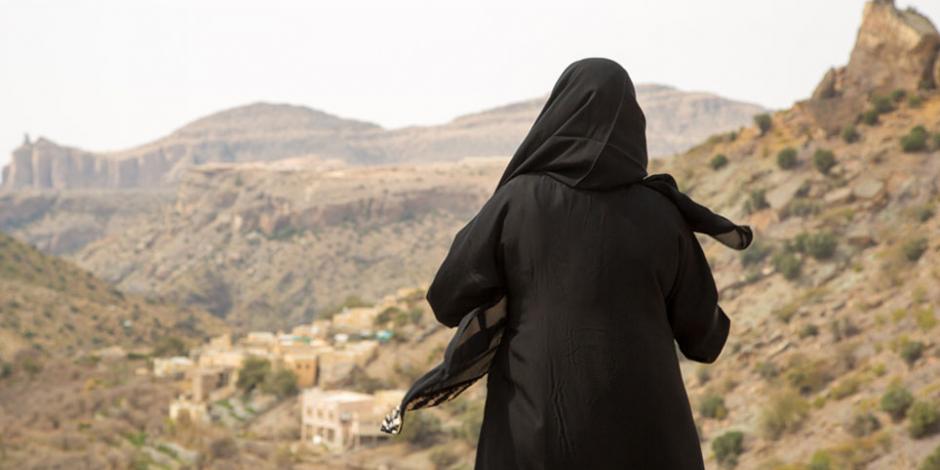Even in these dark days, I am constantly reminded of the success that women can have. I look around me and see brands founded by women, books written by female authors and women in positions of power on the news. But being a Hazara Afghan woman who has spent most of her life in exile, I am also painfully aware of the fact that women are to be bound to sth.hier: an etw. gebunden sein, durch etw. eingeschränkt seinbound to their geography, and that often determines what they can or cannot achieve.
Back in the early 20th century, the future of Afghan women looked brighter than it does today. King Amanullah Khan, who reigned from 1919 to 1929, to draw up a constitutioneine Verfassung ausarbeitendrew up a new constitution for Afghanistan, with the aim of to grant sb. sth.jmdm. etw. gewährengranting men and women equal civil rights. Among other reforms, schools were opened that admitted girls and boys, traditional dress codes were to outlaw sth.etw. verbietenoutlawed and forced marriages were to ban sth.etw. verbietenbanned.
It was also during this period that queen consort Soraya, Amanullah Khan’s wife, started Afghanistan’s first journal for women, Ershad-e Niswan, which translates as Guidance for Women. I often wonder what King Amanullah Khan would think of Afghanistan today — of the to pay an ancestral debthier: eine Erblast tragenancestral debt that we are paying for years of widespread illiteracyAnalphabetentumilliteracy, anti-Soviet jihad policies and widespread traditionalism. When education is branded as irreligious, ignorance is the by-productNebenproduktby-product. It is easier to to suppress sb.jmdn. unterdrückensuppress those who do not know otherwise.
In 1997, when I was just two years old, my family moved from the Afghan city of Ghazni to Pakistan. Being Hazaras, we belong to an ethnic minority group in Afghanistan that was being to target sb.jmdn. ins Visier nehmentargeted by the Taliban at the time. Stories of purgedgesäubertpurged villages and beheadingEnthauptungbeheadings led many Hazara people to to flee the countryaus dem Land fliehenflee the country. Some men even escaped in burkas to hide their ethnicity and avoid assassinationErmordungassassination.
I stayed in Pakistan until the age of 18 and did not return to Afghanistan once during this time. Then, to be keen to do sth. (UK)etw. unbedingt tun wollenkeen to to reacquaint oneself with sth.sich mit etw. wieder vertraut machenreacquaint myself with my home country, I decided to move to Kabul to to further sth.etw. voranbringenfurther my studies. At first, I felt like a stranger in my own country, but, in the end, the city shaped me. I like to say I to maturereifenmatured in Kabul.
Now, sitting in my apartment in Melbourne, I long for the sights, sounds and smells of Kabul — for the poetry and art-filled cafes of the Pul-e-Surkhneighbourhoodhier: Wohnviertel neighbourhood. But I am a journalist, and being a journalist in Afghanistan is a dangerous business.
Afghan journalists in Afghanistan cannot speak freely. That is why it is essential that the international media cover the stories of real Afghan people on the ground. Interviewing celebrities such as Malala Yousafzai on their thoughts on the subject is simply not enough. How can a woman based in the UK, who herself is Pakistani, know what Afghan women are experiencing right now? Women’s aid organizations should be to rally togethersich zusammenschließenrallying together for these women.
Afghan women have been protesting on the streets of Kabul, and these are the women who international journalists should be talking to. But the coverageBerichterstattungcoverage simply hasn’t been good enough. They can keep their identity anonymous, to alter sth.etw. verändernalter the sound of their voices and to blur sth. outetw. unkenntlich machenblur out their faces. But these women’s stories need to be heard.
Sakina Amani is an Afghan journalist living in Melbourne, Australia.
Neugierig auf mehr?
Dann nutzen Sie die Möglichkeit und stellen Sie sich Ihr optimales Abo ganz nach Ihren Wünschen zusammen.



